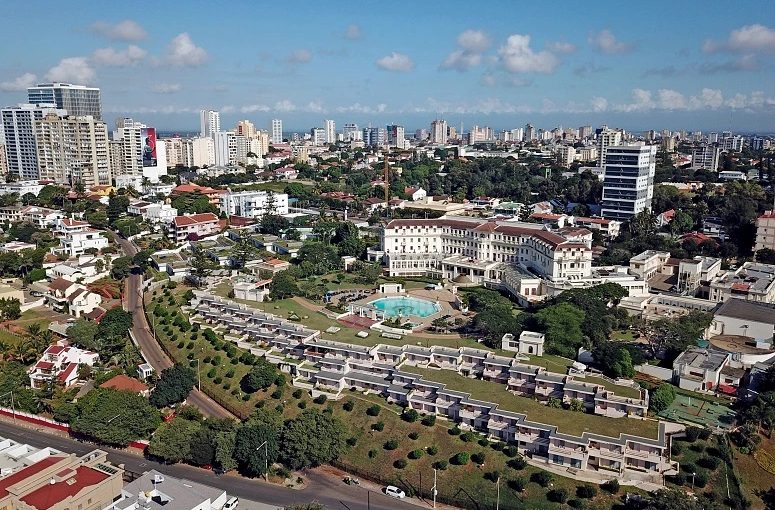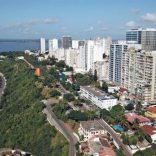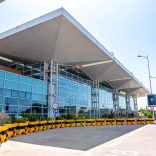Mozambique's private sector activity improves in October, PMI shows
Mozambique: Portuguese businesses underscore a ‘confidence’ scenario

File photo: Lusa
Portuguese businesses in Mozambique acknowledge that they are open to the resumption of investments in a scenario of “confidence” with the resumption of the TotalEnergies gas megaproject and the exit from the “grey list”, but they are asking for access to foreign currency, which is necessary for imports.
“We are always attentive to our business environment, and it’s clear that these two major pieces of news that have recently been released have clearly contributed to the start of confidence. Markets are made with confidence, they are made with rigour, and I think that our country is currently moving towards this consolidation of confidence,” the president of the Portugal – Mozambique Chamber of Commerce, João Figueiredo, told Lusa.
Figueiredo was speaking on the sidelines of the 20th Annual Private Sector Conference (CASP), which ended on Thursday in Maputo, and highlighted Mozambique’s removal from the international “grey list” of countries with problems in combating money laundering and terrorist financing – which it had been on since 2022 -, and the lifting of the “force majeure” clause by TotalEnergies in the context of the $20 billion (€17.2 billion) gas megaproject after four years due to the terrorist attacks in Cabo Delgado, increase the confidence of Portuguese investment in the country.
“With these two pieces of news coming out, I think it’s a turnaround in the state of our economy. After the elections, we had a lot of difficulties, more than a thousand companies closed down, thousands of jobs were lost,” he said, referring to the overall impact of the five months of post-election protests across the country.
Still on the subject of the business environment, Figueiredo said that relations between Mozambique and Portugal are “much easier” since visa facilities were introduced, calling for “reciprocity” in facilitating Mozambican investments in Portugal.
“We’re going to have another bilateral Portugal-Mozambique summit on the 8th and 9th, and there aren’t many details yet, but we’re very confident that it will bear good fruit after these improvements that the country has had (…) I think that here our country has more conditions to attract foreign investment,” said Figueiredo.
He called for increased security to curb crime, especially the kidnapping of businesspeople, praising the government’s efforts to curb this type of crime.
The lack of access to foreign currency is, however, a problem that remains and is transversal: “The issue of foreign currency is a serious problem (…) it affects the country’s entire economy and can be solved in two ways: either we start producing more and exporting more, or we have to have foreign investment capital so that we can have more foreign currency available, but the first part is always better.”
Rita Genésio, from the sales department of Portuguese company Casa do Alumínio, which has been in Mozambique for 10 years and employs 14 people locally, praised the current business environment in the country at CASP, while complaining about the economic damage caused by the post-election demonstrations.
“This year hasn’t exactly been easy; it’s been a year of adaptations due to what happened the previous year. We’re still reformulating the entire company structure. However, we are confident that Mozambique will turn things around,” he said, noting that during this period the company managed to find solutions and move forward with the business.
“We are located in Matola, we live in different areas of the city apart from Matola, it wasn’t easy to get to work, we had several situations in which our positions were called into question, but we managed to overcome that, we didn’t suffer any kind of damage, but we did suffer damage in terms of sales, loss of sales from our customers,” he added, pointing to the reduction in imports due to the crisis, but also complaining about the lack of access to foreign currency.
The Casa de Alumínios company is considering expanding its business to other parts of the country, as it is now based in the south and wants to see Mozambique invest in local production to boost the economy.
“Mozambique lives off imports, but we think there’s a lot that can be made locally, but for that to happen there has to be investment, but people don’t want to invest because of the country’s economic and social instability,” he said, calling on the government to fund local production initiatives.
“The issue of kidnappings. We’ve been here for 10 years, it’s been talked about for 10 years, it’s been happening for 10 years. We’re basically dealing with it,” he said.
Banco Comercial de Investimentos (BCI), the largest in the country and owned by Caixa Geral de Depósitos, believes that the business environment in Mozambique is “promising”, pointing to the reforms that are underway in various sectors and which could generate “great benefits for the economy itself”.
“There are great prospects here for a better future for the country’s economy. In fact, here we also have the great news that Mozambique has been removed from the “grey list”, which is yet another positive indicator so that, in fact, the conditions are in place for the economy to be able to flow and also bring great benefits to the country,” said Eisler Castelo David, the BCI’s public relations director.
That’s why the BCI intends to continue investing in support for micro, small, and medium-sized enterprises to contribute to economic growth.
“I think the constraints [on the Mozambican economy] are all associated with the economy as a whole, and we, as a bank operating in this market, are not short of these challenges. These constraints, which I believe we will overcome, as you said, it’s promising. We will try to create the conditions for our economy to grow again, to pulse again without any kind of constraint,” he said.












Leave a Reply
Be the First to Comment!
You must be logged in to post a comment.
You must be logged in to post a comment.